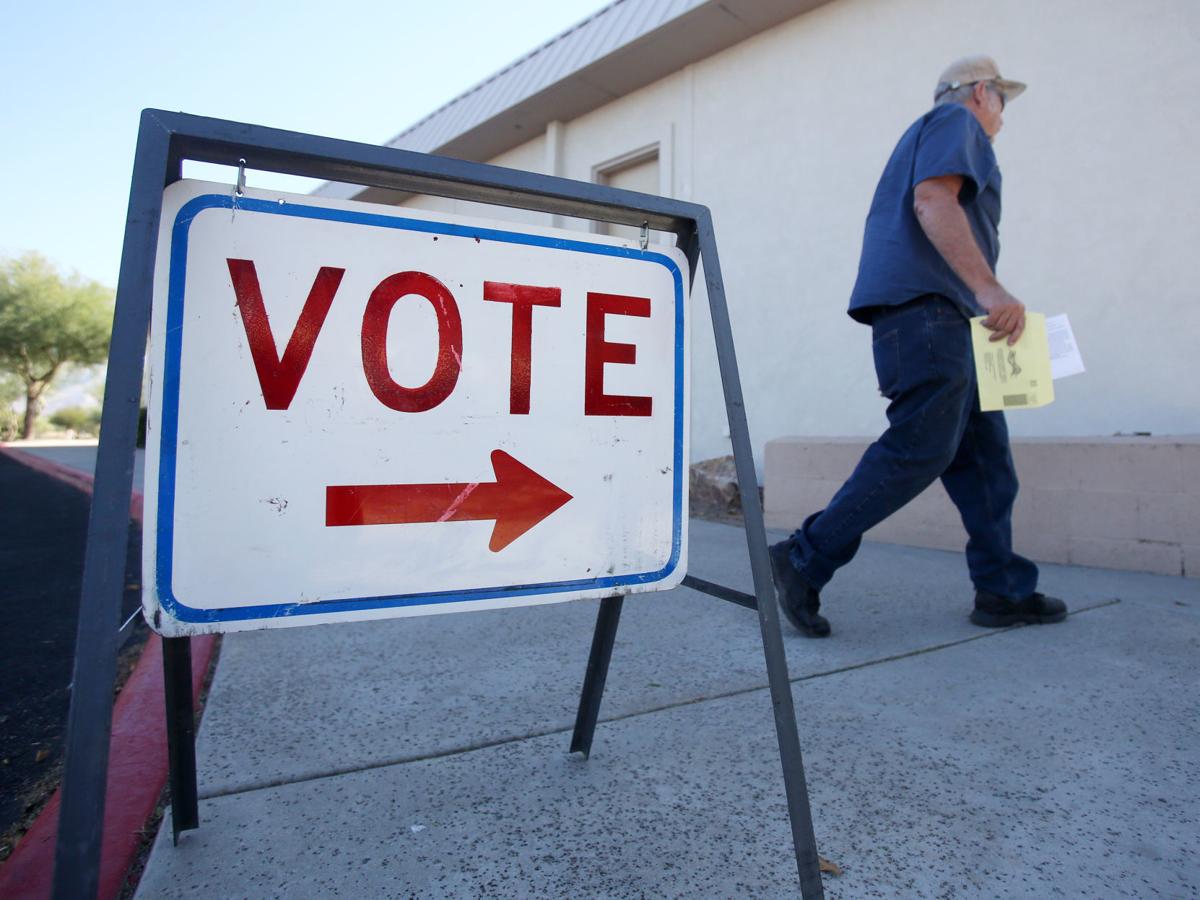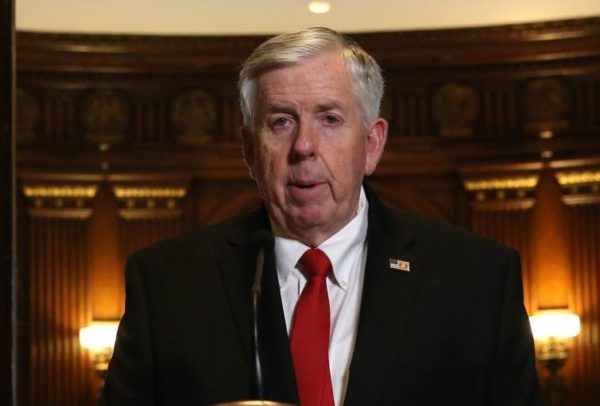Tucson’s odd-year elections set to face new scrutiny from state

Sen. J.D. Mesnard, R-Chandler, is asking Attorney General Mark Brnovich to investigate whether Tucson’s odd-year elections violates a 2018 state law.
Mamta Popat / Arizona Daily Star///
PHOENIX A new legal fight is brewing over the ability of Arizona cities to set their own election dates.
Sen. J.D. Mesnard, R-Chandler, is asking Attorney General Mark Brnovich to investigate whether Tucson’s odd-year elections violate a 2018 state law.
That statute says if turnout in those off-year events falls below a certain standard, cities must bring their election dates into conformance with statewide races.
If Brnovich agrees, he can order that the city lose more than $100 million of its state aid.
As it turns out, both Tucson Mayor Regina Romero and City Attorney Mike Rankin concede that the city ordinance setting the next election for August 2021 conflicts with state law.
But both told Capitol Media Services that the statute can’t legally apply to Tucson — or any of the state’s 18 other charter cities — as they have voter-approved charters giving them the right to decide issues of strictly local concern. And they intend to fight it out in court if it comes to that.
Mesnard, however, said he doesn’t see this as a local issue.
“The state has a vested interest in making sure that voter turnout is reasonably high, not abysmally low,” he said.
“You need to realign because you need more participation,” he said. “Otherwise it’s just a few people making decisions that impact the vast majority.”
Rankin did not dispute that turnout is going to be higher in elections where Arizonans choose a president or a governor. But he said that doesn’t translate to more local involvement.
“Local issues get lost in those elections,” Rankin said.
“So even if there’s a higher voter turnout, we’re at the end of the ballot,” he said. “The local elections are drowned out by the state elections for governor and senator and, then, presidential.”
Romero said the issue is even more basic than that.
She said Tucson voters have been asked multiple times whether they want to move to even-year elections. All have been rejected, Romero said, including the most recent proposal in November 2018, after the new state law was adopted, by a margin of 58-42 percent.
Mesnard’s complaint is the latest in a fight that started in 2012 when lawmakers voted to force cities to consolidate their elections with those already scheduled and taking place for federal, state, local and school issues.
The state Court of Appeals tossed the law two years later, saying the state’s 19 charter cities can have their elections pretty much when they want, no matter what lawmakers said. Appellate Judge Michael Miller said those charters, authorized by the Arizona Constitution, trump state laws on matters of strictly local concern.
Anyway, he said, there may be legitimate reasons for city officials to want their own election dates, saying it forces voters to focus only on those issues.
Two years ago, Mesnard tried a new approach, one he believes will withstand judicial scrutiny.
First, it declares that having consolidated elections “is a matter of statewide concern to increase voter participation in elections.”
It also contains something not in the earlier version: a trigger. It would spell out that the mandate for consolidated elections would kick in only if there is a “significant decrease” in turnout in its off-year elections.
That would be computed by comparing the number of people who turn out for a local election with how many went to the polls in the same jurisdiction during two prior primary or general elections. If that drop off is 25%, the city loses its right to have elections on its own schedule.
In filing his complaint with Brnovich, Mesnard said Tucson’s voter turnout went from 67% in the 2018 general election to just over 39% in the 2019 city election. Yet he said the city has scheduled its next election for August 2021.
Mesnard wants Brnovich to declare that the ordinance setting that 2021 election date violates state law, subjecting the community to a loss of state aid.
“We do have a vested interest in democracy at large and making sure the people are participating and elections aren’t set up seemingly to inspire lower turnout,” he said.
“At that point, it’s a whole ‘nother argument,” Mesnard said. “It’s not one that the court has looked at. So it is different than what they ruled on before.”
Romero disagreed. She said the issue remains the same: The voters have approved a charter that also governs how they want to conduct local elections and have repeatedly said they want to keep that provision.
There actually already is a court case on this issue, with Tucson asking a Pima County Superior Court judge to declare that the 2018 state law does not apply.
But Mesnard said he chose this path rather than waiting for the outcome of the lawsuit which, with appeals, could take years.
By contrast, Brnovich is required to come up with his findings within 30 days, with a decision against the city setting the stage for automatic loss of state aid.
The fight over election dates isn’t the only time state lawmakers have tried to tinker with local elections.
In 2009, the legislature voted to forbid cities from having partisan elections for mayor and council. The same law would have voided Tucson’s modified ward system in which council candidates are nominated from each ward but elected citywide.
But the Arizona Supreme Court voided that law in 2012, ruling that the Arizona Constitution gives charter cities special rights to control their own local matters.

